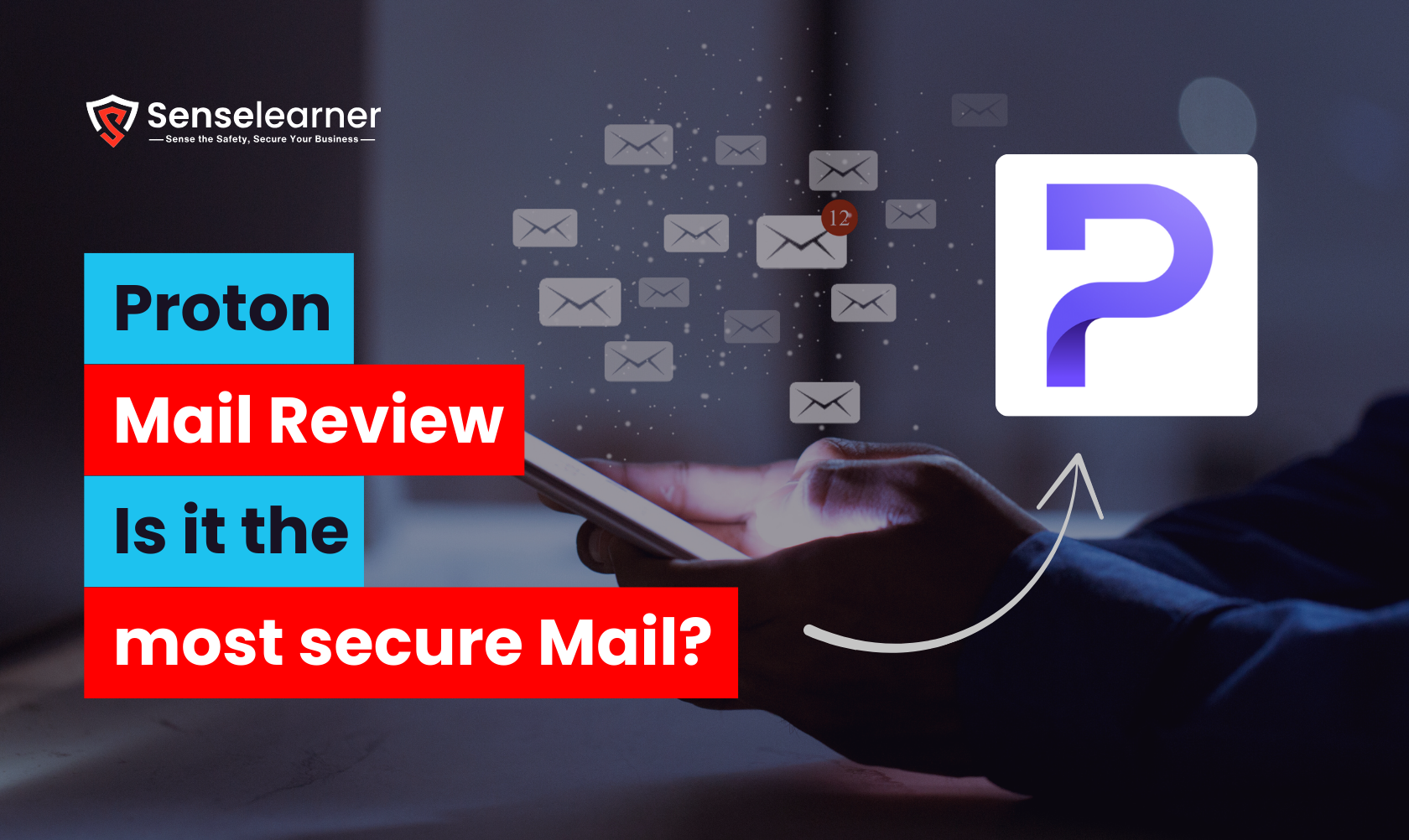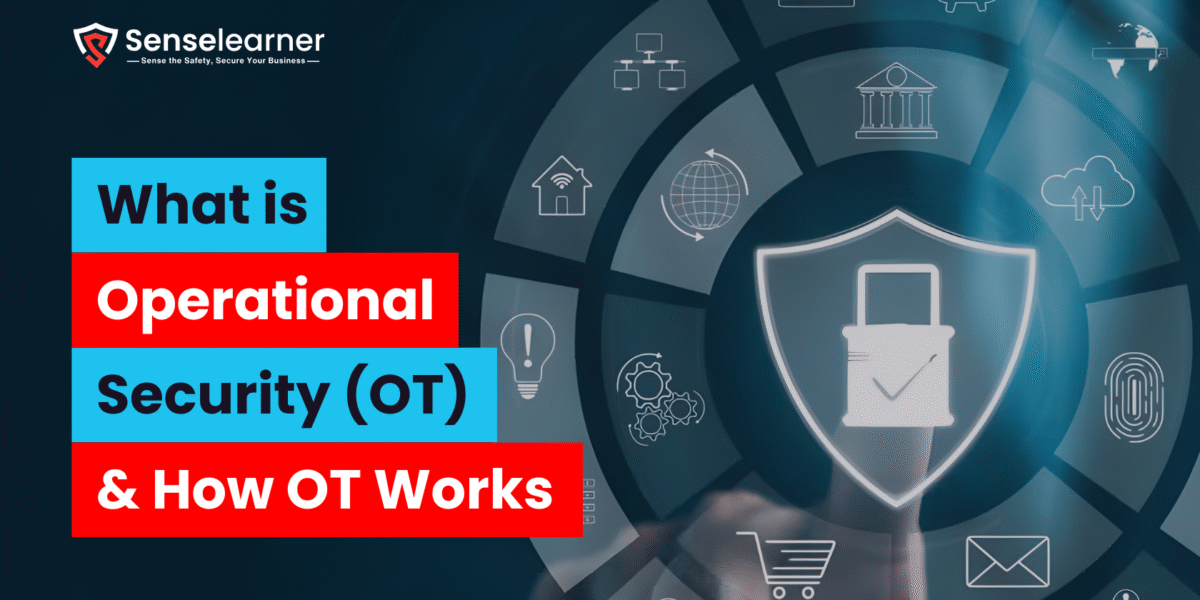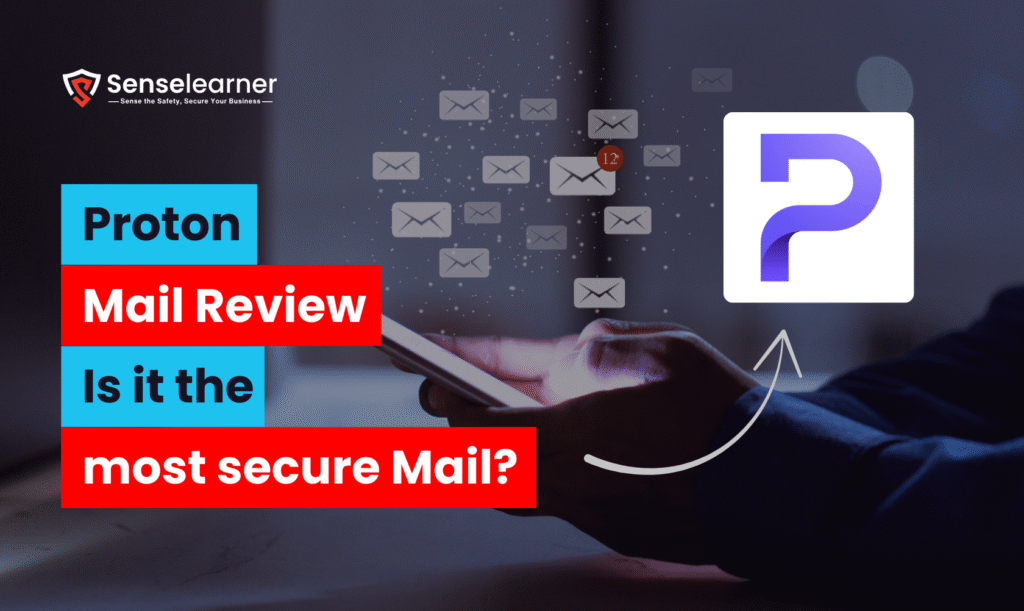
Table of Contents
Proton Mail has rapidly emerged as one of the most talked-about email service providers for security and security individuals. It promises zero-access architecture, end-to-end encryption, and protection under strict Swiss privacy regulations. The main features of Proton Mail will be examined in this review, along with comparisons to other well-known services like Gmail and Outlook, a breakdown of its free and subscription plans, and the appropriate users. We’ll look at its drawbacks and assess if it is deserving of the title of the safest email service on the market.
What is Proton Mail ?
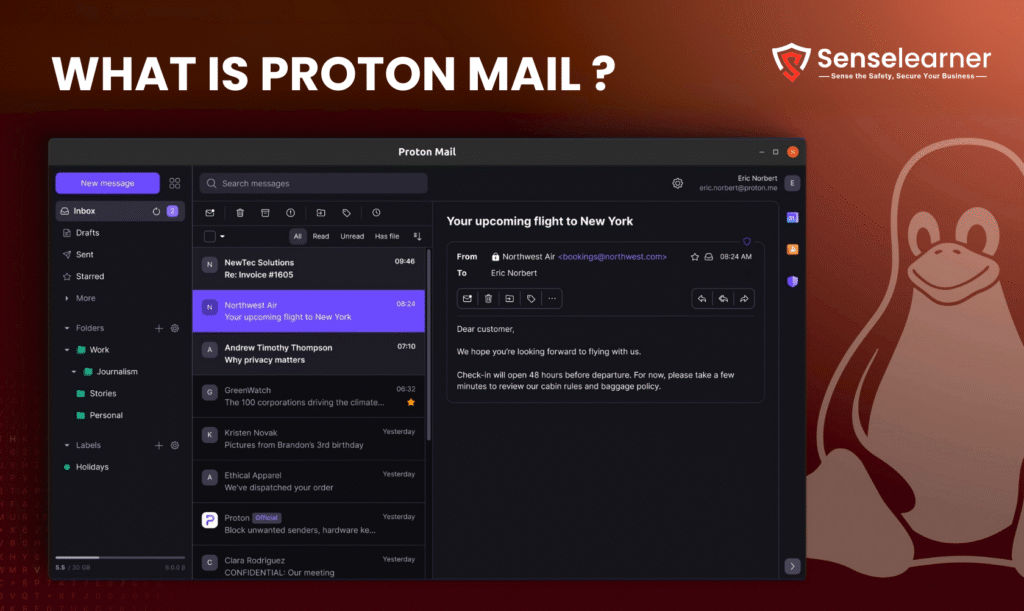
Proton Mail offering end-to-end encryption, open-source transparency, and an easy-to-use interface that makes safe emailing accessible even for beginners are the reasons behind its success.The service is headquartered in Switzerland, user data is protected by strict Swiss privacy laws.
- Proton Mail offers many interesting features in addition to this multi-tiered encryption technology, such as the capability of sending “self-destructing messages,” which are automatically deleted at the moment the sender specifies.
- One technique to be sure a public key you acquired from another user hasn’t been altered since you initially validated it is to utilize address verification.
- full assistance for PGP.
- Premium accounts that offer a number of extra advantages, such as a Business account that can be branded.
- The ability of sending non-Proton Mail users encrypted emails.
Proton Mail vs Gmail, Outlook and other E-Mail providers
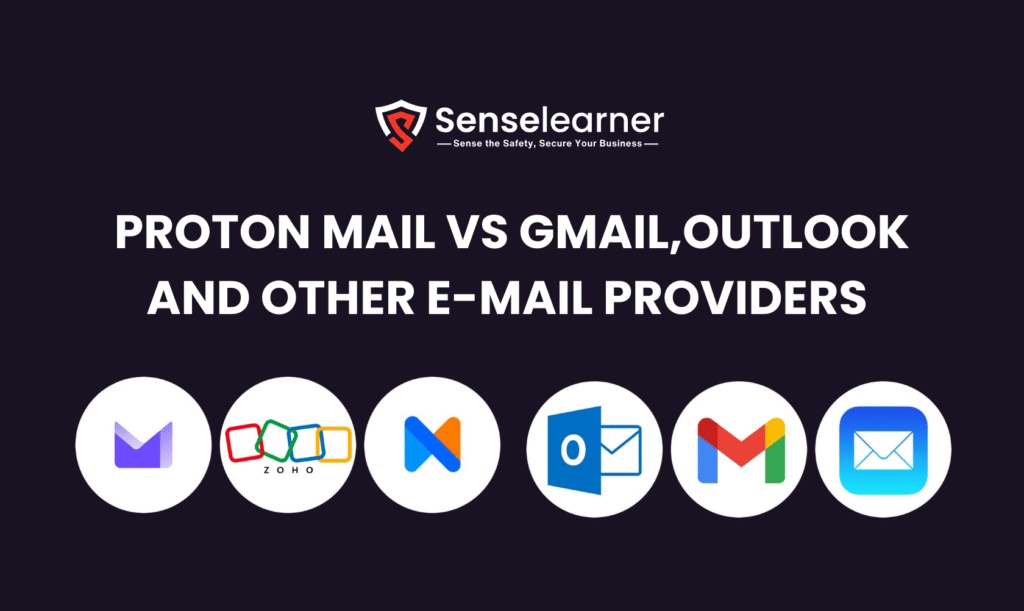
Proton Mail’s security and privacy are where it differs most from popular services like Gmail and Outlook. Even the corporation cannot read your communications because of Proton Mail’s zero-access policy and end-to-end encryption. However, despite offering more sophisticated capabilities and integrations, Gmail and Outlook frequently search user data for advertising or analytics. Google and Microsoft are leading in terms of usability when it comes to storage, third-party apps, and collaborative features, whereas Proton Mail maintains simplicity while maintaining security. Proton Mail is a good option for professionals who value privacy above all else, while those who prioritize convenience might favor Gmail or Outlook.
Also visit What is E-Mail Security Audit and Why it Matters?
Proton Mail Server and Data Security
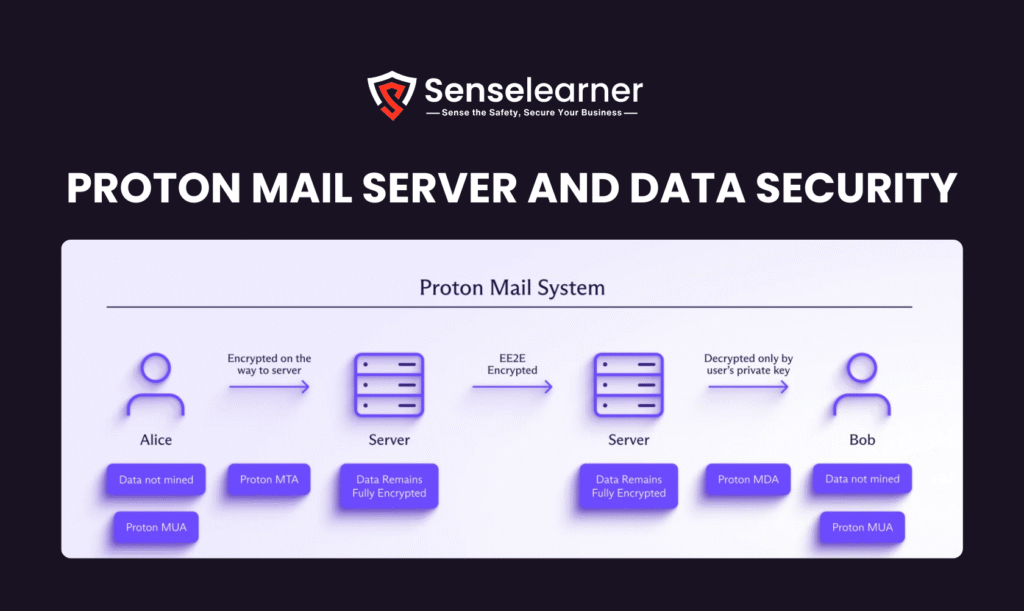
Strong privacy rules in Switzerland protect the safe data centers where Proton Mail keeps its servers. Because all data is encrypted, both in transit and at rest, unauthorized parties cannot access it. Advanced security procedures are in place to safeguard the servers from both physical and cyber attacks. For people and organizations looking for robust data protection, this makes Proton Mail a reliable option. Proton Mail’s frequent security audits make it a reliable option for communications that prioritize privacy.
Proton Mail Free vs Paid Plan – Is It Worth Upgrading?
Proton Mail’s free subscription is suitable for personal use since it provides 500MB of storage, one email account, and basic support. The storage capacity of the Plus, Professional, and Visionary paid plans increases from 5GB to 500GB+. Advanced functionality, customized domains for company branding, and several email addresses are also included. Another perk for paying subscribers is priority help. All things considered, the free plan is excellent for individuals, but for professionals and corporations, upgrading is worthwhile.
Read What is Encryption? and How does it work
Proton Mail Plans and Pricing
Proton Mail offers paid and free plans for various user types. One email address and 500MB of storage are provided under the Free Plan, which is suitable for personal use. In addition to additional features like numerous email addresses, custom domains, and quicker support, the subscription plans (Plus, Professional, and Visionary) give more storage from 5GB to 500GB+. These plans can also be used by companies for team accounts and branding. Although professionals and businesses will find the subscription plans more beneficial, the free plan is good for casual consumers.
Visit Proton Mail
What differentiates regular email encryption from Proton Mail’s zero-access encryption?
Proton Mail employs end-to-end encryption in conjunction with zero-access architecture, in contrast with traditional email services that, in theoretically, have access to your messages. It also means that emails are encrypted before they are sent to Proton’s servers and that your private key is required to unlock them. Proton Mail is more secure than standard services because not even their employees can see your emails.
Can Proton Mail be forced by governments to send over user data?
Switzerland, where Proton Mail is headquartered, has strict privacy regulations. The data it offers is restricted since Proton is unable to decrypt customer emails, even though it must abide with Swiss court demands. If enabled, authorities can view metadata such as IP logs and timestamps, but not the real content of interactions.
What is the importance of Proton Mail’s integration with PGP?
Proton Mail is compatible with external encrypted communication systems because it comes with built-in support for PGP (Pretty Good Privacy). This is important because it enables smooth, safe communication with PGP-reliant users outside of Proton Mail. For professionals who care about their privacy and for organizations that use encryption standards all over the world, it guarantees flexibility.
What are Proton Mail’s encryption model’s limitations?
Email protocols prevent some components, like as subject lines and sender/recipient addresses, from being completely encrypted, even if Proton Mail encrypts email contents. Not only Proton, but all encrypted email systems have this metadata exposure flaw. Proton, however, reduces dangers with stringent privacy regulations, secure servers, and extra features like address verification.
Conclusion
Proton Mail is one of the safest email services on the market right now. Its zero-access architecture, end-to-end encryption, and Swiss privacy protection guarantee that private communications stay private. When it comes to storage, third-party integrations, and collaboration tools, Proton Mail may not be as good as Gmail or Outlook, but it is excellent at what it was designed to do: put security and privacy first.
